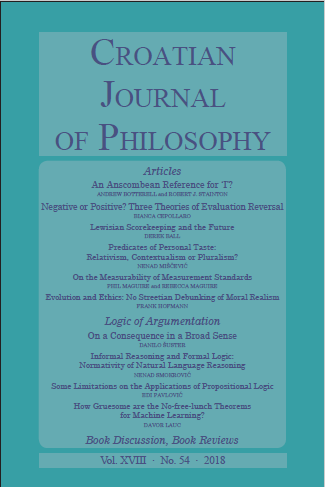On the Measurability of Measurement Standards
On the Measurability of Measurement Standards
Author(s): Rebecca Maguire, Phil MaguireSubject(s): Epistemology, Analytic Philosophy, Philosophy of Science
Published by: KruZak
Keywords: Measurement standard; stability; accuracy; prediction;
Summary/Abstract: Pollock (2004) argues in favour of Wittgenstein’s (1953) claim that the standard metre bar in Paris has no metric length: Because the standard retains a special status in the system of measurement, it cannot be applied to itself. However, we argue that Pollock is mistaken regarding the feature of the standard metre which supports its special status. While the unit markings were arbitrarily designated, the constitution, preservation and application of the bar have been scientifically developed to optimize stability, and hence predictive accuracy. We argue that it is the ‘hard to improve’ quality of stability that supports the standard’s value in measurement, not any of its arbitrary features. And because the special status of the prototype is tied to its ability to meet this external criterion, the possibility always exists of identifying an alternative, more stable, standard, thereby allowing the original standard to be measured.
Journal: Croatian Journal of Philosophy
- Issue Year: XVIII/2018
- Issue No: 54
- Page Range: 403-416
- Page Count: 14
- Language: English
- Content File-PDF

